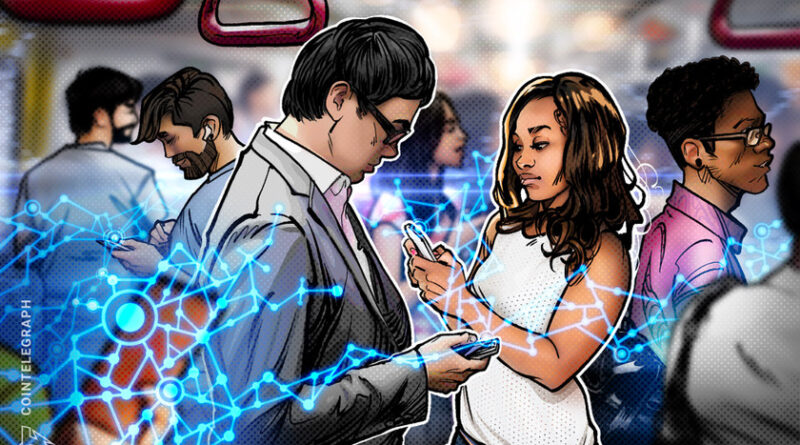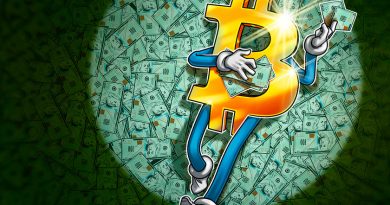What are decentralized social networks?
Explaining Web3 social networks — their benefits, challenges and how they work.
The future of decentralized social media
Traditional Web2 social media platforms are plagued by fundamental problems such as censorship, lack of users’ privacy and demonetization. Decentralization is a potential solution.
Many of Web2’s major social media are already looking for a way out by making steps forward to Web3 and decentralization. For instance, Reddit touted community points, which are ERC-20 tokens that users can earn by posting quality content and contributing to online communities. To do so, Reddit is working with Arbitrum, a layer 2 protocol designed to scale Ether (ETH) transactions.
Twitter rolled out support for NFTs, allowing users to connect their wallets and display NFTs as profile pictures. Meta is also experimenting with nonfungible tokens on Instagram. Blockchain-based social media platforms continue to provide new functions and methods to interact with technology and one another.
Despite the number of challenges, the future will more likely see continued growth and widespread adoption of Web3 social media platforms as users seek more control over their data and privacy; and seek ways to monetize it on their terms. Enhanced security, pseudonymity, censorship resistance and freedom of speech are important reasons for increasing the use of decentralized social media networks.
Popular decentralized social networks
Blockchain-based social networks are gaining traction. There are dozens of social media projects in the cryptocurrency space with millions of users. As technology evolves, more decentralized social networks are expected to emerge, each offering different features and widening functionalities.
Here are a few examples of popular decentralized social media networks:
- Diaspora is one of the oldest decentralized social media networks, launched in 2010. It was touted as a prominent Facebook alternative.
- Built on top of the well-liked decentralized social media protocol Nostr, Damus is a well-known decentralized social media platform with an easy-to-navigate user interface.
- Mastodon is a decentralized microblogging platform that allows users to create and share short text posts and follow other users. Mastodon boasts of being the world’s largest free, open-source, decentralized microblogging network. Basically, Mastodon is an open-source alternative to Twitter.
- Peepeth is an Ethereum-based social network alternative to Twitter that aims to provide a more secure, private and censorship-resistant platform for social media.
- Hive is a decentralized social network built on the blockchain and aims to provide a more secure and transparent social media experience.
- Minds is a decentralized social network that aims to provide a more open and transparent platform for free speech and digital rights. It allows users to speak freely, protect their privacy, earn crypto rewards and regain control of their social media.
- Pixelfield is a decentralized alternative to Instagram launched in 2018. It offers users control over their data and ensures the privacy of users’ images without any advertisements on the platform.
- Status is a secure messaging DApp that uses an open-source, peer-to-peer protocol and end-to-end encryption to protect users’ messages from third parties.
- Mirror is a decentralized, user-owned publishing platform built on Ethereum for users to crowdfund ideas, monetize content and build high-value communities.
- Lens Protocol is a decentralized social graph launched by the team behind Aave (AAVE) in 2022. It helps creators take ownership of their content. The project gives users the tools to create their own social media platforms using Web3 technology.
- Steemit is a blockchain-based blogging and social media website founded in 2014. It was specifically developed using steem blockchain technology.
- DTube is a blockchain-based social media video network. It was built on Steem and the IPFS, with users paid in the Steem (STEEM) token. Subsequently, it switched to its Avalon blockchain.
- Only1 is an NFT-powered social media protocol built on Solana.
- Aether is an open-source platform for self-governing communities with auditable moderation and moderators elections that is an alternative to Reddit.
Decentralized social networks vs. Traditional social networks
By many parameters, decentralized social networks are an innovative alternative to traditional centralized ones.
Here are some key differences between traditional Web2 social networks and decentralized social networks:

It is important to note that decentralized social networks are still in their early stages of development, with their features and benefits subject to change.
Drawbacks of decentralized social networks
Web3 social media also has several drawbacks compared to traditional centralized ones. These issues can impact the adoption and success of decentralized social networks, but the technology is still evolving and these challenges may be addressed over time.
Decentralized social networks struggle with attracting a large user base, as most people are accustomed to using major social networks such as Facebook, Twitter, or Instagram and may be hesitant to switch.
Furthermore, decentralized social networks are more complex to use and understand compared with traditional ones, acting as a barrier to adoption. Sophisticated user interfaces and a need to dive into the crypto world still scare non-techy users.
Moreover, decentralized social media may suffer from a shortage of attractive features. Lots of them have limited functionality compared with centralized social media, which can impact their usefulness and appeal to potential users.
Also, social media platforms usually require large throughputs to support fast, constant social interactions and effective functioning. For decentralized social networks, scalability is a pain point since their decentralized nature limits the ability to handle large amounts of traffic and data.
Blockchain-based decentralized social networks with native crypto economies may be subject to cryptocurrency market volatility and could be influenced by unpredicted events. The situation on the market can quickly impact the value of rewards earned by content creators and the overall stability of the social network.
Moreover, it may cause a shutdown of the network if it lacks funds. This, in turn, will lead to users losing their social connections. The answer is sustainable economic models for platforms. Using decentralized storage systems like the InterPlanetary File System (IPFS), social networks can protect user information from exploitation and malicious use.
And last but not least, decentralized social networks may face challenges with regulation. To date, there are still no global standards for blockchain. Governments and financial institutions still seek to regulate decentralized networks and the crypto space.
Benefits of decentralized social networks
Needless to say, decentralized social media, like any social media platform or service, promotes connectivity, community building and knowledge sharing. Moreover, based on how they work, decentralized social networks offer several benefits compared with traditional centralized social media.
First, Web3 social media platforms increase privacy since they allow users to control and own their data, making it more difficult for major companies or governments to access or misuse their information.
Furthermore, decentralized social networks are less susceptible to data breaches, as user data is stored across a decentralized network of nodes rather than on a central server. Users can create accounts without linking them to real-world identities, like email addresses or phone numbers. These networks often rely on public key cryptography for account security rather than on a single organization to protect user data.
Web3 social media provide censorship resistance and supports freedom of speech. Such platforms are a great place for free speech and expression, as no central authority can control or censor content. Nevertheless, decentralized social media’s ugly side can include political misinformation, cyberbullying and criminal activity because they are largely unmoderated.
Other benefits include ownership over personal data and improved control over user-generated content. Decentralized social media allow users to retain the rights to their content and provide an opportunity to earn rewards for it.
A unique feature of Web3 social networks is governance through decentralized autonomous organizations (DAOs). With it, they can be governed in a decentralized manner, offering users the ability to decide on the direction and development of the network. Smart contracts lay the foundation for the activities of the DAO. They are clear, verifiable and publicly auditable, allowing any potential participant to fully understand how the protocol will work at all times. A DAO treasury is funded by issuing tokens, giving tokenholders the right to vote.
Economic neutrality is an important ethos for many decentralized social networks. Such networks aim to be independent of intrusive advertising and the privacy risk it poses. As a result, apart from venture capital financing, they utilize new forms of monetization to stay solvent, including digital currency to ensure business resilience and reward users.
Web3 social media benefits create a more secure, transparent and user-centric social media experience, with a more democratic and open alternative structure to traditional centralized social networks.
How do decentralized social networks work?
Web3 social networks use blockchains to store and manage the platform, its data and its content.
Here are the essential components and an overview of how a decentralized social network operates:
Decentralized and transparent data storage
Blockchain brings trust back to the privacy of social networks thanks to its transparent and cryptographic nature. Also, blockchain-based social networks store data separately between several different independent nodes. Therefore, user data, such as profile pictures, information, posts and interactions, are stored in a decentralized manner across the network.
Smart contracts
Decentralized social networks are powered by smart contracts. The contract code serves as the backend for these social media platforms and characterizes their business logic.
Consensus mechanisms
A consensus mechanism, such as proof-of-stake (PoS) or proof-of-work (PoW), is used to validate transactions and enable trust and security in the network.
Token economy
A token economy component that powers decentralized social network monetization includes cryptocurrency. It is often used to incentivize social network participants and reward them with tokens for content creators.
Decentralized applications (DApps)
Many Web3 social networks are available as decentralized applications (DApps) or support DApps on top of them that offer additional services and functionality, such as payments, NFTs and more.
Secure user authentication
Decentralized social media users, like users of the majority of Web3 services, are identified and authenticated through a secure public key infrastructure.
Censorship resistance mechanisms
Decentralized social media platform users can create and share any content on the network without moderation. No centralized third party can censor their expressions and remove or modify their content.
The above features work together to create a more secure, transparent and user-centric social network experience.
What are decentralized social networks?
Decentralized social networks are networks where user data and content are stored on a blockchain and independent servers rather than centralized servers controlled by a single company.
While Web2 social media platforms have benefits and challenges, Web3 technology can drastically improve space. The key flagship of that change is decentralized social media networks — an emerging type of social network which operates in a decentralized manner. This allows for more privacy and security and gives users control over their data, digital identity and content, fostering transparency, as anyone can view the data at any time.
Blockchain-based social platforms aim to promote free speech and provide censorship resistance, with no central authority controlling or manipulating the content. Additionally, no third party can own, collect, or sell user data.
Also, Web3 social networks often utilize fungible and nonfungible tokens (NFTs) as new ways to monetize content. Thus, decentralized social networks are not just a change in the infrastructure of centralized Web2 platforms; they are also changing the method of how social media companies make money.
What is a social network?
A social network is a platform or service that enables users to set up either fully or partially public profiles, share content and connect with other users based on common interests, life experiences, or personal connections.
Since its emergence in the mid-1990s, social media has become an important and undoubtedly integral part of people’s everyday lives, covering half of the world’s population. The rise of social media is not surprising since social networks as a phenomenon have many benefits and catching features.
First and foremost, social media can connect friends, families and communities, no matter the distance, providing an opportunity for real-time correspondence. Second, they make it easier to exchange information and ideas, facilitating communication and other forms of expression. Social networks offer entertainment through online content and enable the creation of communities around shared interests.

Lastly, social media may be a tool to boost businesses, allowing them to reach a wider audience and build a stronger online presence. In the 21st century, social networking is a significant opportunity for marketers seeking to attract, engage and acquire customers.
The current state of social networks in Web2, the web we know today, is complex and controversial. On the one hand, they play a significant role in shaping public opinion, driving political discourse and connecting people worldwide; on the other hand, social media faces increasing challenges, such as privacy concerns. For instance, it is widely known that centralized social networks earn money by selling consumer data. The public is becoming increasingly aware of the risks associated with personal and sensitive information sharing on social networks and requires greater confidentiality and control over their data.
Social media space monopolization is another hot issue. A few dominant companies, such as Facebook, Twitter and YouTube, control a large portion of the social media market and users’ data. As a result, they face growing criticism of their power and influence.
Censorship, the suppression of speech, public communication, or other information, is also challenging. Governments in countries like China and North Korea, along with major Web2 social networks, can censor content or ban any account on the platforms.
Also, social media platforms are a constant subject of increased regulation. Governments worldwide enhance their regulatory supervision of social media in response to concerns about data confidentiality, election interference, spreading fake news and harmful, misleading content.
On top of that, social media’s advertising-driven and data-collection business model is under scrutiny as concerns about data privacy and the spread of misinformation continue to grow.




